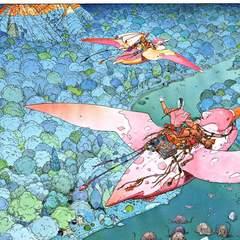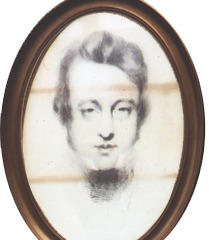Walter Savage Landor Quotes - Page 7

We may receive so much light as not to see, and so much philosophy as to be worse than foolish.
Walter Savage Landor (1853). “Imaginary Conversations of Greeks and Romans”, p.444
Walter Savage Landor (1824). “Imaginary Conversations of Literary Men and Statesmen”, p.311
Walter Savage Landor (1856). “Selections from the Writings of Walter Savage Landor”, p.170
Friendship may sometimes step a few paces in advance of truth.
Walter Savage Landor (1888). “Imaginary Conversations”
Walter Savage Landor (1846). “The Works of Walter Savage Landor”, p.377
States, like men, have their growth, their manhood, their decrepitude, their decay.
'Imaginary Conversations' 'Pollio and Calvus' in 'The Works of Walter Savage Landor' (1876) vol. 2, p. 441
Walter Savage Landor (1824). “Imaginary Conversations of Literary Men and Statesmen: Richard I and the Abbot of Boxley. The Lord Brooke and Sir Philip Sidney. King Henry IV and Sir Arnold Savage. Southey and Porson. Oliver Cromwel and Walter Noble. Aeschines and Phocion. Queen Elizabeth and Cecil. King James I and Isaac Casaubon. Marchese Pallavicini and Walter Landor. General Kleber and some French officers. Bonaparte and the president of the senate. Bishop Burnet and Humphrey Hardcastle. Peter Leopold and the President Du”, p.62
Walter Savage Landor (1824). “Imaginary Conversations of Literary Men and Statesmen”, p.4
Walter Savage Landor (2016). “Delphi Collected Poetical Works of Walter Savage Landor (Illustrated)”, Delphi Classics
Walter Savage Landor (1846). “The Works of Walter Savage Landor”, p.207
Old trees in their living state are the only things that money cannot command.
Walter Savage Landor (1824). “Imaginary Conversations of Literary Men and Statesmen: Richard I and the Abbot of Boxley. The Lord Brooke and Sir Philip Sidney. King Henry IV and Sir Arnold Savage. Southey and Porson. Oliver Cromwel and Walter Noble. Aeschines and Phocion. Queen Elizabeth and Cecil. King James I and Isaac Casaubon. Marchese Pallavicini and Walter Landor. General Kleber and some French officers. Bonaparte and the president of the senate. Bishop Burnet and Humphrey Hardcastle. Peter Leopold and the President Du”, p.118
Walter Savage Landor (1856). “Selections from the Writings of Walter Savage Landor”, p.43
Where power is absent we may find the robe of genius, but we miss the throne.
Walter Savage Landor (1853). “Imaginary conversations of Greeks and Romans”, p.306
Walter Savage Landor (1853). “Imaginary conversations of Greeks and Romans”, p.435
Walter Savage Landor (1856). “Selections from the Writings of Walter Savage Landor”, p.287
Walter Savage Landor (1853). “The Last Fruit Off an Old Tree”, p.291
"Dying Speech of an Old Philosopher" l. 1 (1853)
Walter Savage Landor (1829). “Barrow and Newton. Peleus and Thetis. The King of Ava and Rao-Gong-Fao. Photo Zavellas and his sister Kaido. Epicurus, Leontion, and Ternissa. The Empress Catharine and Princess Dashkoff. William Penn and Lord Peterborough. Miguel and mother. Metellus and Marius. Nicolas and Michel. Leofric and Godiva. Izaac Walton, Cotton, and William Oldways”, p.428
Walter Savage Landor (1826). “Imaginary Conversations of Literary Men and Statesmen”, p.453
Despotism sits nowhere so secure as under the effigy and ensigns of freedom.
Walter Savage Landor (1853). “The works of Walter Savage Landor [ed. by J. Forster].”, p.140
Walter Savage Landor (1853). “The works of Walter Savage Landor [ed. by J. Forster].”, p.4
Walter Savage Landor (1853). “The works of Walter Savage Landor [ed. by J. Forster].”, p.243
Every witticism is an inexact thought; that which is perfectly true is imperfectly witty.
Walter Savage Landor (1856). “Selections from the Writings of Walter Savage Landor”, p.51






